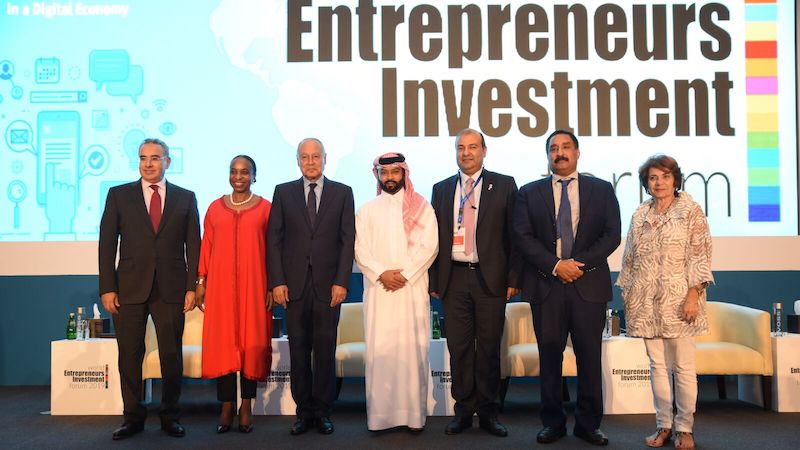Interview with Kaiser Naseem Banking & Digital Finance Advisory Services

 Please tell us more about Digitization and Digital Transformation, and its role in the current global marketplace.
Please tell us more about Digitization and Digital Transformation, and its role in the current global marketplace.
Today, technology provides society a great opportunity to better undertake the work each one of us is doing. Whether it is managing a business, providing financial and banking services or running a city government, the tools now available in the form of technology are powerful and impactful. By using these tools, the way work is done can become more efficient and effective. With the help of technology, we can ensure faster access to basic services for all humans, whether it be access to food, health services, markets or finance. With the help of technology, we are better able to manage agricultural output, manufacturing and energy use. In short, technology enables us to build a more homogenous society allowing for a much deeper impact on economic development. However, since the structures that are currently in place in terms of existing institutions (financial institutions, city governments, regulatory bodies, etc.) are legacy ones, a transition period is needed to change not only these legacy systems but also legacy mindsets and ways of thinking. Only then can technology be leveraged adequately and strategically.
This is what we call digital transformation; transforming from legacy systems and mindsets to ones that incorporate technology with the view of improving the way we do what we do. This transformation is not easy, as it requires a great deal of effort in terms of commitment, understanding, and willingness/ability to change.
Moreover, a conducive eco-system must be created, and regulatory frameworks developed, which, while protecting the system and the consumers, should not stifle innovation. As such, this transformation from legacy to digital has a very significant role in the current global marketplace in that it must be undertaken properly and responsibly to ensure that consumers of products and services are being served in a timely and efficient manner.
What are the key opportunities that will influence new ways of working through digital transformation?
A major opportunity that is available today is a large number of young people inhabiting the planet; more so in the MENA region. It is these youth who are unencumbered with legacy issues that will be able to ensure that technology is embedded in every activity to make it more efficient and cost-effective. This will be done through innovation, and through creating institutions and eco-systems that are not only supportive of technology but also mindful of the impact on the environment: social and other issues faced by humanity to ensure sustainability. The opportunity for using technology lies in each aspect of society – from ensuring financial inclusion to conserving energy, to alleviating poverty and hunger to justice for all and beyond. Each of these areas can benefit from technology and these are the opportunities that properly guided young entrepreneurs can tap, target and innovate on. By properly guiding young entrepreneurs, I mean that they should be provided the necessary education, skills and work ethics to address the issues that they will face in a responsible and sustainable manner.
How will digital transformation affect entrepreneurs and small and medium enterprises?
With digital technology now disrupting almost all segments of the economy, the opportunities for young entrepreneurs are many in terms of designing new products, services, and processes that leverage technology. In today’s economy, where the way people buy products, access services and consume information is changing rapidly, entrepreneurs that are innovative and forward-looking have a big role to play in meeting these changing demands.
We thus see more and more of our youth now opting to work for themselves by setting up their own businesses and catering to the demands of the consumer. Small businesses have the opportunity to use technology to lower their costs and move faster, whether for assessing finance, reaching markets or supplying products. This allows them to use the limited resources that they have in a more efficient manner, something that only technology allows them to do.
Moving to the next 5-7 years, what do you see are the opportunities present for entrepreneurs especially in the MENA region—who can harness the power of all things digital?
Given the youth population in the MENA region, coupled with the fact that the region is also fast embracing technology, there are several opportunities for entrepreneurship, mainly in serving the requirements of a digital economy. MENA is a region with several issues rooted in history, culture, and tradition. However, the youth are the ones who are taking it out of its legacy state and moving the region into the new century and making it more in sync with modern times. With such a shift comes a need for innovative ways of conducting business, running governments and ensuring responsible behavior by individuals and corporates.
Over the years the eco-system for nurturing entrepreneurship in MENA has been strengthened, mainly with support from multilateral and bilateral institutions, such as the UN/UNIDO, World Bank Group, etc. The current breed of entrepreneurs can (and have) avail of opportunities to become self- employed and leverage technology to develop businesses catering to the changing economic landscape. Already, we see several MENA based enterprises that have become regional or even global players.
Over the next 5-7 years, as the populations of this region become more digital savvy, the eco-system becomes more conducive, and the regulatory frameworks become more supportive, we will see many new young entrepreneurs with novel ideas aimed at solving grass-root problems, be it taking care of refugees, making payments to the underprivileged or providing local support to global companies, as part of their supply chain. The opportunities are immense.
What advice can you give to entrepreneurs, especially those who are from developing countries?
The advice and key messages I would want to give to young and upcoming entrepreneurs not only in developing countries but even globally are as follows:
- The opportunities to build an inclusive future better than the past, is within our reach, given the more powerful tools we now have in the form of technology. Therefore, innovate for sustainability and to ease the life of 85%+ of the global population who are struggling to make ends meet. Identify their pain-points and innovate to redress them;
- Always remember that the kind of future you build as entrepreneurs depends on how responsible you are in building it. Most important of all, innovate with responsibility and empathy;
- Regulations follow innovation; so, as entrepreneurs and innovators make sure to leave a track record of responsible behavior. Otherwise, regulations that follow may stifle innovation;
- While data is fast becoming a commodity and will be used in all innovations and entrepreneurship endeavors that leverage technology, make sure that its collection, structuring, and use is undertaken responsibly;
- Responsible innovation includes ensuring that any ML (metalanguage) being undertaken, or algorithms being developed are not reflecting biases of persons/institutions developing them;
- As entrepreneurs and innovators, you may be constrained by legacy eco-systems made for legacy institutions; so be part of the dialogue to change them;
- Make sure to leverage each other for strength; ensure you have a platform to interact with regulators/ other stakeholders so that the regulatory, legislative and other
eco-systems to be put in place are aligned with what your innovation is wanting to achieve; - Challenge the legacy education systems and influence and demand changes so that they match your expectations of learning (and even unlearning and relearning); and
- Learn from experienced legacy professionals; perhaps more of what not to do (unfortunately).














